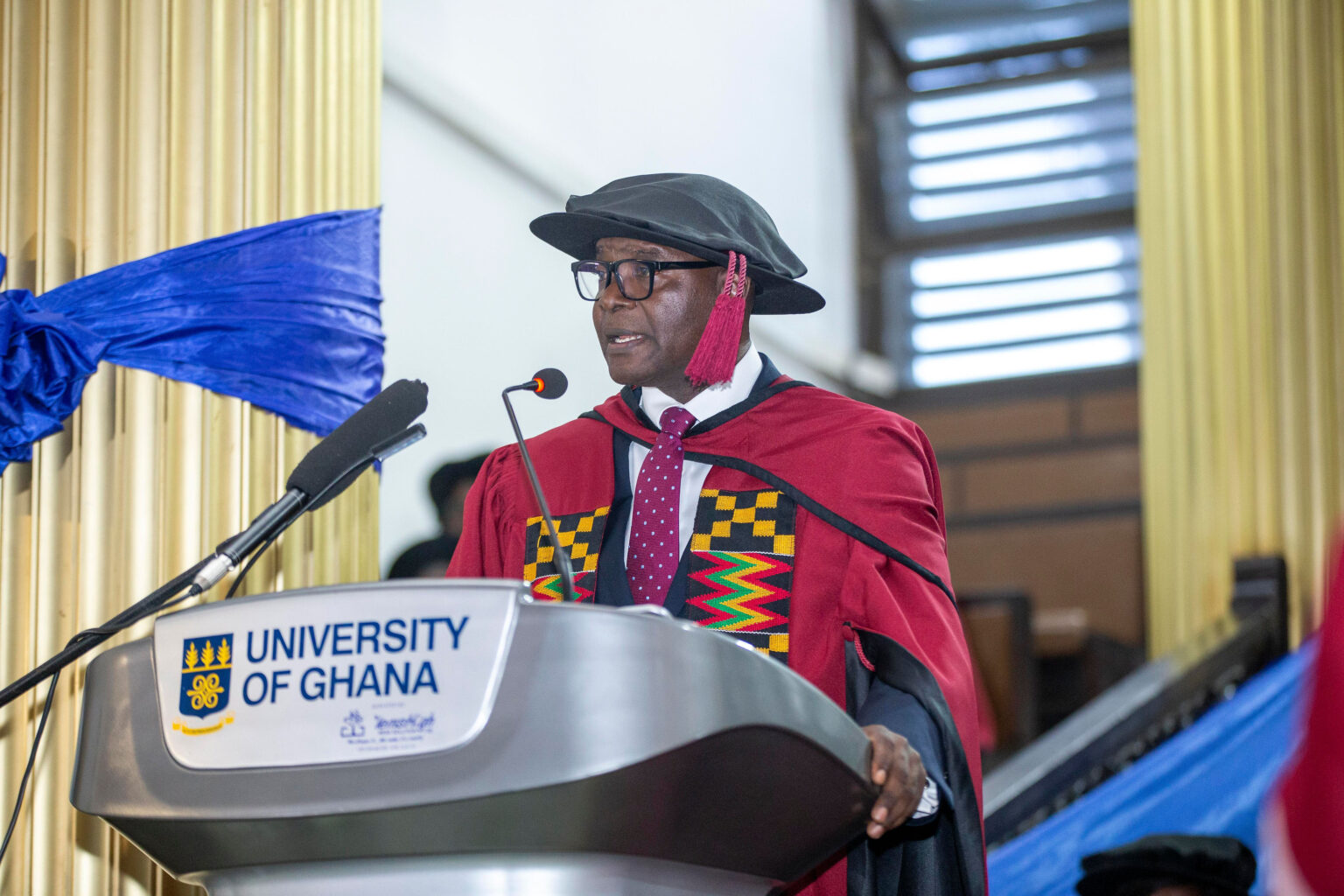Professor Daniel Frimpong Ofori, a Project and Applied Management Specialist and Professor of Management at the University of Ghana Business School, has described strategic Corporate Social Responsibility (CSR) as a key tool for organizational success.
Prof. Ofori, who led the drafting of the Ghana National CSR Policy (NSCRP) between 2013 and 2014, made this assertion during his inaugural lecture on the topic “Of Indomie, Kalypo and Condoms: An Intimate Conversation about Corporate Social Responsibility in Ghana.”
Prof. Ofori discussed the theoretical dimensions of CSR and what is expected of organizations. “CSR means that an organization should be held accountable for any of its actions that affect people, their communities, and their environment,” he said.
“It implies that harm to people and society should be acknowledged and corrected if possible. It may require a company to forgo some profits if its social impacts seriously hurt some of its stakeholders or if its funds can be used to have a positive social impact.”
Prof. Dan Ofori
He explained that CSR has many names, including Corporate Responsibility (CR), Corporate Citizenship (CC), Sustainability, Corporate Philanthropy (CP), and Environmental, Social, and Governance (ESG).
Prof. Ofori noted that CSR goes beyond what companies do with their profits to cover how they make them. “CSR goes beyond philanthropy and compliance and addresses how companies manage their economic, social, and environmental impacts,” he added.
Prof. Ofori stressed that CSR is about managing relationships in all key spheres of influence, including the workplace, marketplace, supply chain, community, and public policy realm.
He highlighted that strategic CSR is the most potent, long-lasting, and valuable approach in the 21st century.
In his recommendations, Prof. Ofori called for the government to enhance its approach to CSR. He proposed that the Ministry of Trade and Industry lead as the management agency, house the CSR Secretariat, and spearhead periodic policy reviews.
He indicated that the National CSR Secretariat should develop strategies and guidelines, promote CSR activities, and manage service provision, monitoring, and evaluation.
Prof. Ofori further proposed the establishment of a National CSR Steering Committee to endorse policy reviews and provide strategic direction at the national level while encouraging organizations to establish dedicated units or departments to strategically manage their CSR activities.
He also highlighted the need for a robust communication strategy focusing on awareness creation and knowledge dissemination through various media and networks about the National CSR Policy and initiatives.
This, he believes, will guide organizations to be strategic, responsible, and accountable in their CSR activities.

